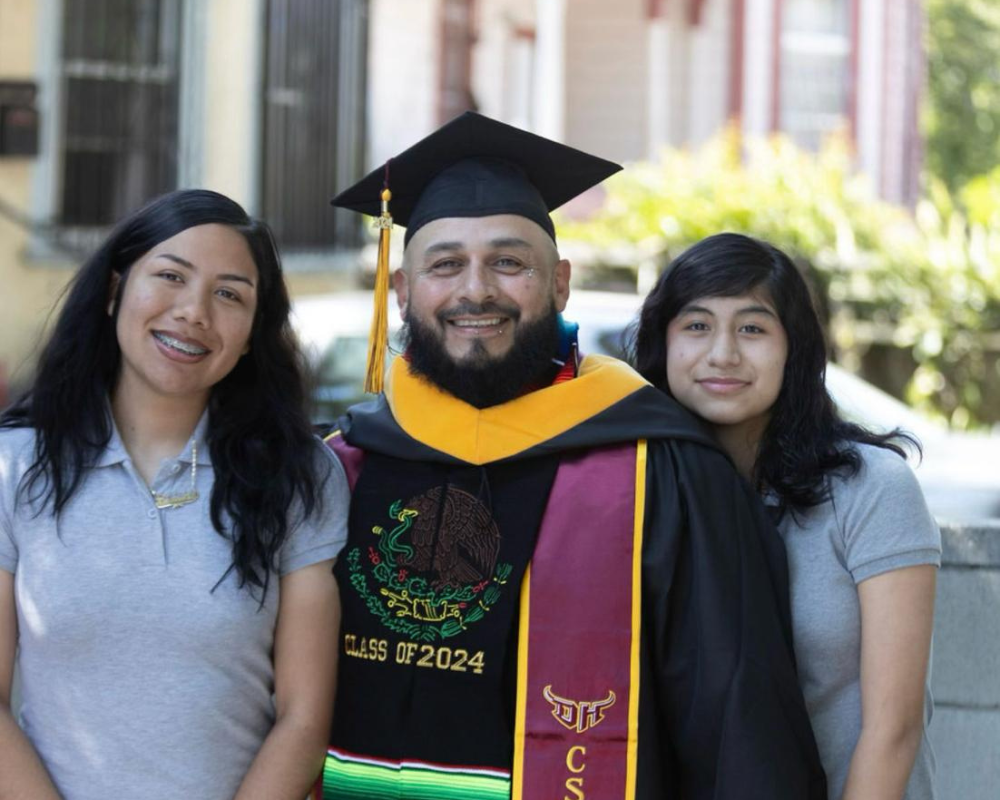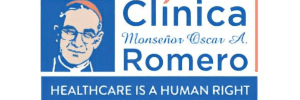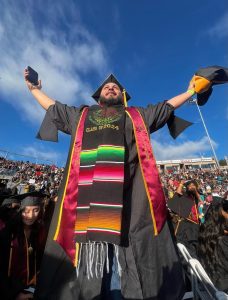Ruben Olmeda: “I owe my life to Clinica Romero”

In 2022, drug overdoses claimed over 100,000 lives in the United States. Drug addiction doesn’t discriminate, but access to treatment and recovery often does.
In recognition of September being National Recovery Month, Los Angeles District 1 City Councilwoman Eunisses Hernandez, this week recognized the strength, resilience, and courage of people in recovery and the organizations that helped them achieve this.
“This a moment to stand together as a community and say loud and clear that recovery is possible and no one has to walk that journey alone,” said Hernandez during the Los Angeles City Council meeting on Tuesday, September 10, when she honored several community-based organizations that are helping Angelinos achieve and sustain recovery.
Among the honorees was Clínica Romero, which offers substance use disorder treatment and outpatient services to adults and youth grappling with addiction, helping save many lives, including that of Ruben Olmeda.
Born and raised in Lincoln Heights to Mexican immigrant parents, Olmeda fell prey to gangs and drugs at an early age.
“In the 1990s, you had a lot of gang and drug activity,” he recalls of his youth. “Almost every block had a dealer.”
When he entered high school, the pull of the streets was too strong and Olmeda eventually dropped out. That’s when he entered a drug spiral that would continue for years.
Drug Addiction
“I got involved with almost any drug you can think of,” says the 46-year-old.
It started with alcohol, which numbed him, he says.
“I no longer worried about anybody; no fear, no feelings, no emotions.”
Marijuana came next, followed by crack, cocaine, acid, mushrooms and ultimately meth (also known as “crystal” or “ice”).
“That’s the one I got stuck on the most,” he says.
From about age 15 to 21, his life was consumed by the synthetic stimulant that can be smoked, snorted, injected, or taken orally and is often used with other substances. Someone using meth may experience a temporary sense of heightened euphoria, alertness, and energy. Some drug users are known to stay awake for days on end while on the drug.
During those years he had stints in juvenile halls and juvenile camps before he stopped and went to an inpatient program for about a year.
FIRST RECOVERY
“I got cleaned,” says Olmeda, who went to support meetings and even started working as a substance abuse counselor for adolescents.
That recovery lasted for about 10 years before “I interacted again with that old lifestyle and fell back into my own tracks and decided to try it again,” he says.
“I went for another 4-5 years of using,” he adds. “I found myself going back to jail again,” after he failed to show up for a court hearing.
“I was on the run,” he admits. “At the end I was going from friend to friend (people I would meet) until I finally decided to turn myself in.”
By then, the drug had taken complete hold of him again.
“I couldn’t go a day without using. I couldn’t see myself functioning without it. I was really in prison in my own brain,” Olmeda says.
After completing a two-year jail sentence, Olmeda came out and went right back to the “party scene” though he was tired of using drugs.
“I kept saying, I don’t want to use anymore; I’m done, but I couldn’t stop.”
But, he says, “I believe when you’re out there using, you lose the ability to have the choice of stopping” because the pull of the cravings for the drug is too much.
In fact, Olmeda was in jail again for another 10 days when he violated his parole by not checking in with his probation officer. That time behind bars allowed him to rest and detox from the drug.

OLMEDA FINDS CLÍNICA ROMERO
Ironically, it was after he came out and while he was hanging out with other users that he heard about Clínica Romero when a girl who was attending one of the group sessions there told him about the program.
Olmeda says he was upfront when he went to Clínica Romero.
“I told them, ‘I don’t have money, I’m in probation; I need help. I want to get sober and change my life’.”
At Clínica Romero he finally found the help he needed.
“I used to go there every day. I was the first one there and I was the last one to leave,” he says. “I found a safe heaven place for myself.
He took advantage of all the services offered there, from anger management, group and individual counseling, to parenting classes for a man who by this time had two daughters.
“When I had free time, I would go into every single office and share and talk and listen to each counselor,” he says.
This time, the recovery worked.
“Clínica Romero just had the right counselors who knew what to do. They gave me hope,” says Olmeda, who provide the help without judgment or stigma. “You actually see people trying to help you. They gave me the opportunity to treat it (my drug addiction) one day, sometimes one second at a time.”

Clínica Romero also gave him the opportunity to return to school. Olmeda earned his GED and later took a psychology class at East Los Angeles College. He went on to earn a Bachelor’s degree in Psychology and completed a Master’s degree in Science and Family Therapy.
BACK TO SCHOOL
Clínica Romero also gave him the chance to return to school.
He got the itch when his oldest daughter told him one day that she didn’t want to go to school. Partly ashamed and unsure of what to respond, Olmeda decided to register at a continuation school next door to the clinic’s Marengo Street location.
He eventually got his GED and later one of his cousins encouraged him to take a psychology class at East Los Angeles College, where he passed with an “A.”
“That experience was huge. I couldn’t believe I was a college student,” says Olmeda, who went to earn a Bachelor’s degree in Psychology at California State Dominguez Hills, where he just completed his Master’s degree in Science and Family Therapy and is now an Associate Marriage and Family Therapist.
Now 46, Olmeda—who shared his story at the City Council meeting—has rekindled the relationship with his 16-year-old daughter Samantha and 12-year-old daughter Gabriella, both good students and avid volleyball players.
Through the parenting classes at the clinic, “I started to learn what it is to be a father. I started to listen to my daughters,” says this proud father.
For that, and for his life, he’s eternally grateful to Clínica Romero.
“I never stopped going to the clinic to be part of the groups. They never closed the doors on me,” he says. “They saw the positive in me. I couldn’t imagine myself without Clinica Romero.”
Asked where he would be today if he hadn’t found Clínica Romero, Olmeda doesn’t hesitate to answer.
“I don’t know if I would be alive or in jail for who knows what,” he says.
Clínica Romero Substance Use Disorder Department
(323) 987-1034
Suicide & Crisis Lifeline Substance use Suport
988

